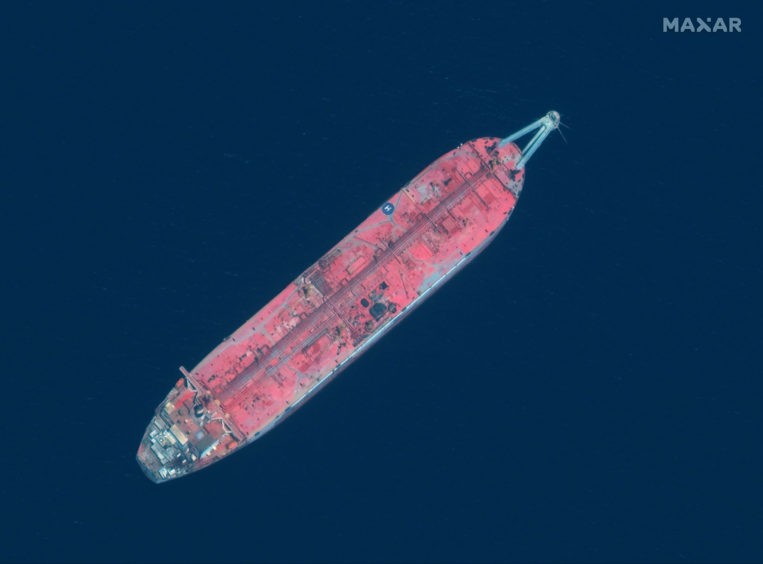
Greenpeace International has named ExxonMobil, OMV and TotalEnergies as companies involved in storing crude on the FSO Safer, the ailing ship offshore Yemen.
The NGO reported the ship holds 1.14 million barrels.
The international oil companies that produced the oil should foot the bill for salvaging the Safer, Greenpeace said. These companies “must also be held accountable for any potential humanitarian and environmental impacts resulting from the FSO Safer, because the financial weight of oil pollution should be carried by polluters, not by people”.
The companies used the FSO as recently as 2015 to store crude from their assets. The companies have reported record profits but have not provided any funds to carry out the Safer rescue.
“The rusting Safer is a disaster in the making,” said Greenpeace International project lead Paul Horsman. “Yet despite the neglected tanker threatening a human and environmental catastrophe in Yemen and the Red Sea, the oil industry has stayed very quiet, even though the US$75 million cost of the salvage operation is but a drop in the ocean compared to the record profits of the oil supermajors recently announced.”
Greenpeace International based its accusations on companies producing and exporting via the Marib-Ras Issa pipeline.
Between 2010 and 2015, 13 fields were producing in the Marib Basin, Greenpeace said in its report.
Occidental Petroleum owned a 75% stake in Block S-1 Damis until 2016, while TransGlobe Energy had 25%.
OMV had a 44% stake in Block S2 Al Uqlah, while Sinopec had 37.5%.
ExxonMobil had a 15% stake in Block 5 Dev Jannah, while Total had 15%.
OMV and Total responded to Greenpeace’s requests for comment. OMV said it had produced oil in Yemen until spring 2015 but has no current entitlement to barrels on the FSO. Total made a similar statement, saying it does not own any oil on the vessel.
Greenpeace said this did not absolve the companies of responsibility.
Taking action
Greenpeace MENA executive director Ghiwa Nakat said oil companies’ greed “knows no bounds. While oil companies like ExxonMobil, OMV and TotalEnergies celebrate their massive profits, an unprecedented environmental and humanitarian disaster is looming in Yemen and the Red Sea.”
“This really is a perverse colonial attitude, ‘big oil’ firms exploit natural resources, put communities at risk, greenwash and try to cover their tracks, but display a deafening silence when it comes to stepping up and taking responsibility.”
The United Nations reported on September 21 that it had the $75 million required to begin the first phase of work on the FSO Safer operation. It will require an additional $38mn to replace the Safer in a second phase of work.
The Netherlands pledged $15mn, Germany $10mn and the US $10mn.
Greenpeace has said salvors must remove the oil from the FSO before the end of October. After this point, weather conditions will worsen and the risks of a spill increase.
